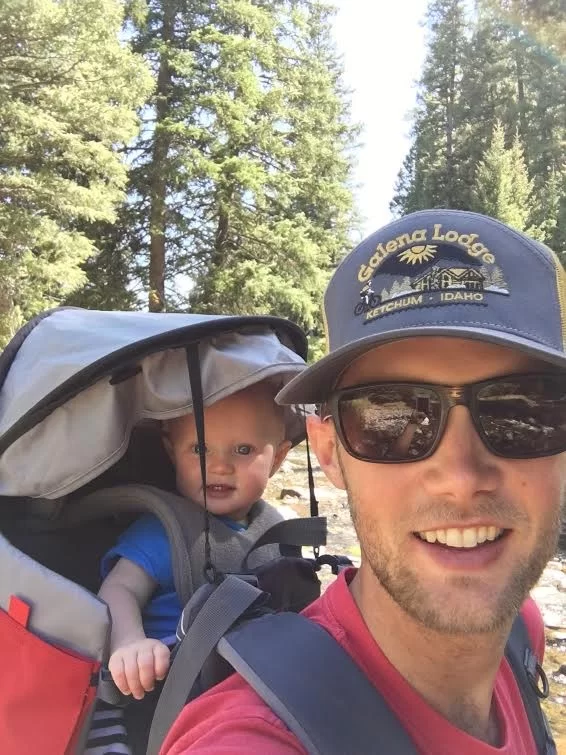John Reuter ’08
Energy and Green Building Consulting

What are you up to now?
After graduating from Bates in 2008 in the midst of the massive economic crash, I came out of college with a surveyor job lined up that went from overtime to no work at all almost overnight. I got hired at a hydrology firm in Southern California where I worked for a year and a half before moving back to Idaho to work at a cross-country ski center for two years. In 2011, I started my business called John Reuter Greenworks, where I do energy and green building consulting for any type of building you can think of to make buildings more functional, durable, and energy-efficient. 5 years ago, I started installing solar PV systems as well.
How has your decision to pursue an Environmental Studies major at Bates impacted your current career?
The interdisciplinary nature of the Environmental Studies major at Bates made me really qualified for my work after graduation because I came out strong in both the humanities and the sciences. Having studied the natural sciences through my geology concentration, I was able to land my first job after Bates at a terrible time. Working at that firm for a year and a half writing reports and managing projects made me more comfortable starting my own business. As an Environmental Studies major at Bates, I didn’t learn about construction but about processes, from understanding the way that materials communicate with each other to the way that air and moisture move. I gave lots of presentations to architects, builders, and environmental groups in the first three or four years of running my business as it was my primary form of advertising. Having learned at Bates how to present and be comfortable speaking in front of people, I was able to build connections in the construction industry which was integral to the success of my business.
What was the most rewarding aspect of being an Environmental Studies student at Bates?
I loved the Environmental Studies department from the beginning and as a freshman, I took classes that would be considered to be on the humanities side of Environmental Studies. After taking a semester off, I came back to Bates to solidify my education in the sciences. Rather than pursuing geology, which required a year of physics, chemistry, and calculus, I supplemented the humanities Environmental Studies courses with hard science courses. The Environmental Studies major with a science concentration is valuable in a way that you can’t ever quite put in a brochure for Bates, and was a wonderful balance that I use every single day. I also appreciated the opportunity to study abroad in Iceland for a semester. Knowing that it is so hard to do that later in life, I would’ve gone for a year if I could do it over again. Most of all, I really valued my senior thesis process with Holly Ewing, someone I had a great relationship with, which was definitive for me in my education. Writing a thesis was difficult and never-ending, but in hindsight, I wouldn’t trade it for the world.
Any fond memories of the Environmental Studies department?
I remember wading through streams for five weeks during a stream restoration short term, and Carl Straub drawing and then circling a whale on his chalkboard. He was saying, “The land is the whale, the water is the whale, the earth is the whale”. I enjoyed the mapping and field studies work that I did with Camille Parish over the years. I also have fond memories of working on my thesis on the water chemistry in Acadia National Park as compared to acid rain. I collected samples five or six times, including once in the winter when I spent eighteen hours in Acadia in snowshoes.
Any advice for current students trying to decide on a major or in general?
My advice is to take advantage of both sides of the Environmental Studies department, the sciences and the humanities side. Within Bates as a whole, branch out as much as you can and take advantage of what it means to be at a liberal arts college. Even if you think you have your interests figured out, take advantage of what Bates has to offer beyond what you’re required to take. Most work these days is not narrow. I don’t work in the sciences but understanding the science helps me communicate the building work that I do. I don’t work in the humanities but I write reports and give presentations using skills that I gained from humanities classes at Bates. You may not even realize during the time that you’re at Bates how special it is because it’s demanding and challenging. But the opportunities at Bates are so varied and so special. Try to not be stressed by that never-ending to-do list and pick your head up and look around at all of the opportunities here. At the end of the day if you get an A or a C that’s less important than the broad knowledge that you will gain. Think less about the grades and just go for it!